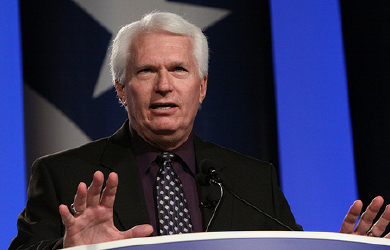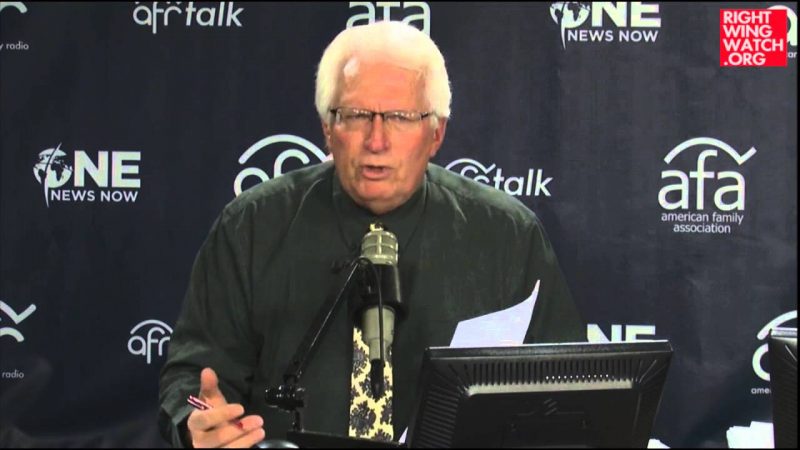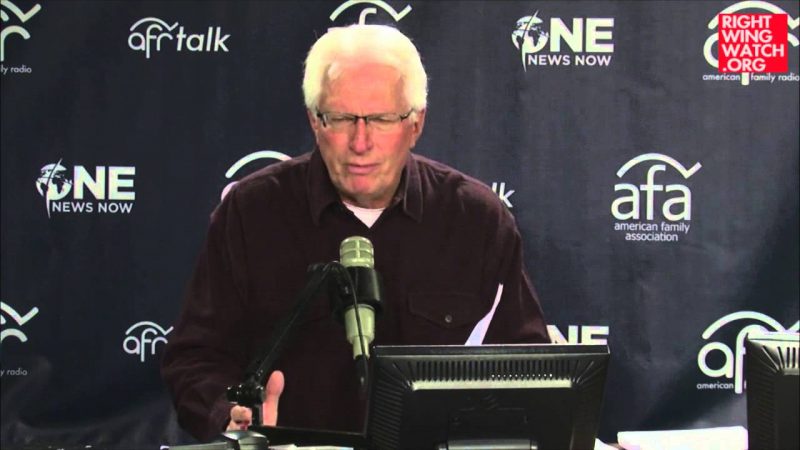In a column this week defending Donald Trump’s proposed ban on Muslims entering the country, Bryan Fischer of American Family Radio insisted that Japan has issued similar restrictions on Muslims, and that is why the country doesn’t face terrorism:
There is a simple reason we never read about jihadi attacks in Japan. There are no Muslims there. No Muslims, no terrorists.
…
Dr. Mordechai Kedar, writing in The Jewish Press, offers some of the details (emphasis mine throughout):
This country keeps a very low profile on all levels regarding the Muslim matter: On the diplomatic level, senior political figures from Islamic countries almost never visit Japan, and Japanese leaders rarely visit Muslim countries. The relations with Muslim countries are based on concerns such as oil and gas, which Japan imports from some Muslim countries. The official policy of Japan is not to give citizenship to Muslims who come to Japan, and even permits for permanent residency are given sparingly to Muslims.
…
Islamic proselytization is forbidden in Japan, it is very difficult to import Qur’ans into the country, and there are very few mosques. In Japan, Muslim men are expected to pray at home, not in mosques or in the middle of the street as they do in France. Islamic organizations are not allowed, so the Japanese do not have to deal with the incessant stream of propaganda coming from pro-jihadi groups like CAIR. There is only one imam in Tokyo, a city of over 13 million people.
Virtually the only Muslims who are in Japan come as employees of foreign companies. And even that is the exception rather than the rule. “The official policy of the Japanese authorities is to make every effort not to allow entry to Muslims, even if they are physicians, engineers and managers sent by foreign companies that are active in the region.”
As the myth-busting website PolitiFact notes, the claim that Japan imposes special restrictions on Muslims emerged in a right-wing meme that consisted of nothing but false claims.
“The chain email is nothing but malicious falsehood,” said Kumiko Yagi, a professor at the Tokyo University of Foreign Studies Graduate School who has written extensively about Islam and other religions.
Kamada Shigeru, a professor of Islamic studies at the University of Tokyo, agreed, saying that all four of the claims we spotlighted are wrong.
He said Japan doesn’t discriminate in permanent residency on the basis of religion and that “propagation” of Islam is not banned. He added that the Koran or other religious books in Arabic can be imported.
…
Meanwhile, there is nothing in Japanese nationality law that prevents Muslims from becoming naturalized citizens. The requirements concern length of residency, age, a history of “upright conduct,” the ability to support oneself and a willingness to give up other nationalities. There is no mention of religion.
…
The graphic says that in Japan, “permanent residency is not given to Muslims,” the “propagation of Islam” is banned, “one cannot import a Koran published in the Arabic language,” and “Muslims cannot even rent a house.”
Each of these four statements is incorrect, and the overall point of the graphic — that Japan keeps itself free from radical Islam by discriminating against all Muslims — is dramatically off-base. We rate these claims Pants on Fire.
Warren Throckmorton also points out that Japan’s own government claims that Muslims in Japan face less discrimination than they do in western nations.
In 2013, Fischer similarly relied on a right-wing meme to falsely claim that Japan has banned Muslims, the Quran, mosques and the teaching of Islam.
Apart from Fischer’s inaccurate description of Japan’s policies towards Islam, he also ignores the fact that Japan has indeed faced terrorist attacks … but not from radical Muslims.
The extremist Aum Shinrikyo cult was behind a sarin attack on Tokyo’s subway system in 1995, an attack that “left 13 people dead, and more than 6,000 others suffering the effects of the nerve gas.” The group also conducted a deadly sarin gas attack in 1994.
The police found “hundreds of tons of chemicals in raids on Aum Shinri Kyo (Supreme Truth) doomsday cult,” including “extensive preparations for chemical and biological attacks.” The police also broke up other plots to conduct “guerrilla raids against parliament and prime minister’s residence.” One subway cleaning woman later discovered bags in a subway station restroom with enough cyanide gas “to kill, in theory, 10,000 people.”
“Nearly 200 members of the cult were convicted in connection with the Tokyo sarin attack and a string of other terror attacks and assassinations,” the Huffington Post notes.
Japan also has a history of violent attacks from both far-left and far-right groups.
Perhaps Fischer may consider performing a simple Google search next time he wants to use his column to repeat right-wing myths.








